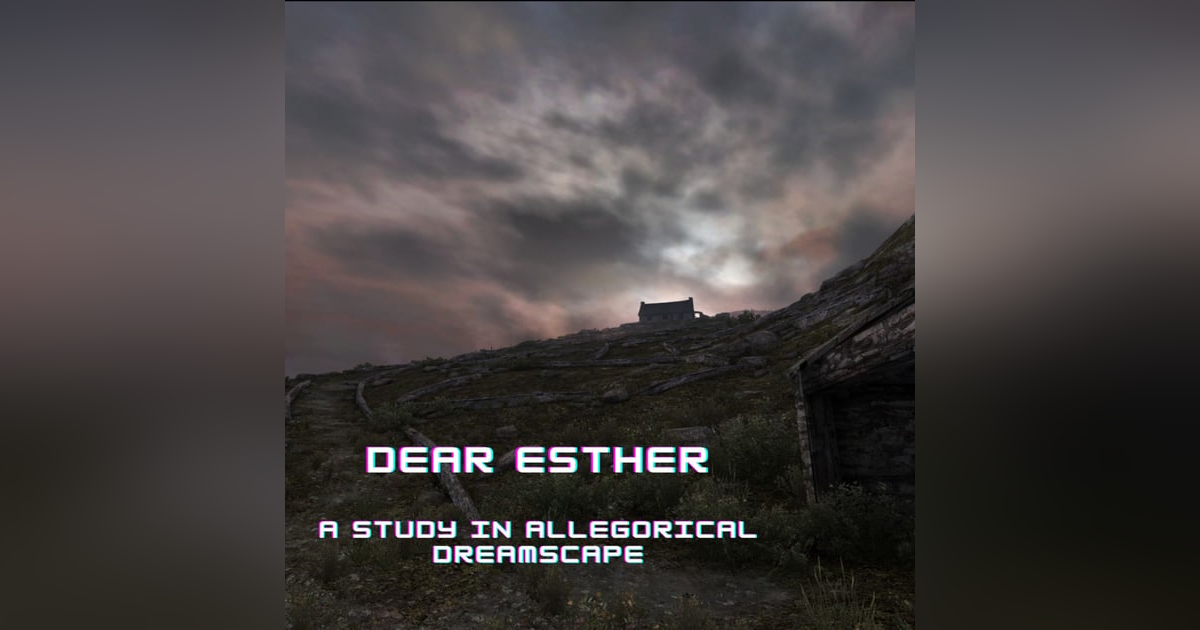
Sign up to get updates from us
By signing up, you agree to receive email from this podcast.

Sign up to get updates from us

Co-hosts Tete DePunk and Fortunus Games explore the themes explored in Dear Esther, a 2013 video game created by the acclaimed English video game company, The Chinese Room.
Dear Esther explores the process of grief and emotional transcension through a vague character reflecting on the loss of his wife.
Throughout the game, as the character reveals through mystic soliloquies of science and religious reveries, that the accident is indirectly their own fault. This adds another weight of guilt into the mix of grief and loss.
The game lacks much interaction. Instead, the player is left with no choice, but whisked into the immersion of being drawn across the harsh landscape of a desolate, scrub-bush island. The lack of choice is fatalism played out, much like the character forced to process their own loss and realize, life, like death, is inevitable in its juggernaut of events.
Fortunus and Tete ask each other the following questions to discuss Dear Esther:
What do you think the game’s story is?
What do you think of the biblical references?
Do you consider this a game, since it is just a walking simulator with no action or puzzles?
What can this kind of game offer that other types of game cannot offer?
What do we make of how the character processes grief?
The ending is somewhat vague. Does the character kill themselves and ascend spiritually? Or somehow transcends beyond death? Is this a good ending?
What can we learn from Dear Esther?




